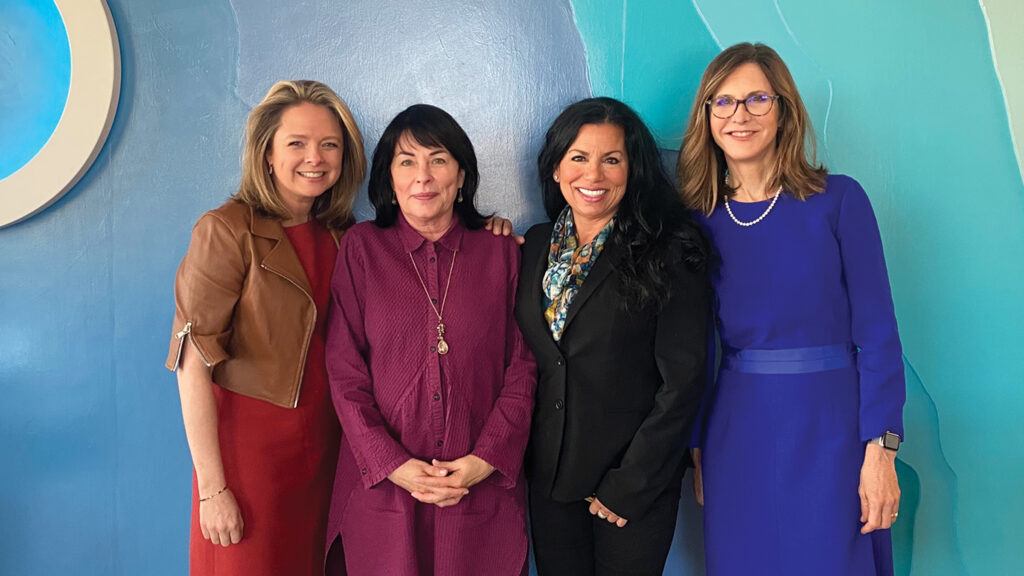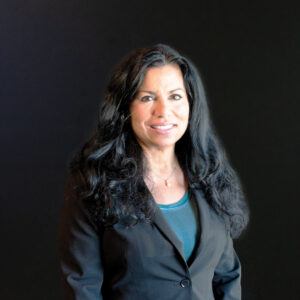
Blog
Strong Women Leadership. That’s Health As It Should Be.
Righting the imbalance of gender bias in healthcare leadership starts at the top. It starts with self-aware companies that understand the importance of having a diverse leadership team that represents the diversity of its clients and members.
International Women’s Day is an opportunity each year to both celebrate the success of women colleagues and friends, and reflect on the progress being made to resolve the widely known dichotomies of gender biases in healthcare.
It’s no secret that despite making 80% of all healthcare buying decisions, industry-wide only 25-30% of healthcare executives are women – and only 13% of healthcare CEOs are female. Healthcare organizations that are truly committed to transforming care outcomes know that success starts with understanding your members and that means having leaders who are representative of your stakeholders – people who “look like me.”
At Crossover Health, our executive team is rich with female leadership who bring deep expertise in their fields; that expertise translates to a positive impact on the members we serve, as we fulfill our vision of delivering Health As It Should Be. We aim to leverage the unique perspectives of our female leaders to cultivate an environment that supports and embraces diversity, inclusion and belonging.
Thank you to Sandra Cavanah, Chief Financial Officer; Sally Larwood, RN, Chief Nursing Officer; Celeste Ortiz, Chief People Officer; and Katie Higgins, Chief Revenue Officer for sharing your perspectives and advice on breaking the bias in women’s healthcare.
Happy International Women’s Day!

Sandra Cavanah – Chief Financial Officer
Q: How can women in healthcare leadership roles help break biases in women’s healthcare?
A: It’s likely not a surprise to anyone reading this that several studies have found that stereotypes about gender affect how doctors treat their patients. For example, a 2018 study showed that doctors often view men with chronic pain as “brave” or “stoic,” whereas doctors view women with chronic pain as “emotional” or “hysterical.” The same study found that doctors were more likely to treat women’s pain as a mental health condition, rather than a physical condition.
There is also a history of inequity in medical research with the vast amount of research up unto the 2000’s only including male participants, despite the obvious oversight that disease, drugs, and therapies affect men and women differently. The lack of inclusivity in medical research has contributed to gaps in knowledge that continue today, particularly with LGBTQ+ and trans health.
All of us – not just women – have a duty to recognize gender bias and take actions to address it. In the workplace, we have to enforce rules that prevent discrimination, intimidation, and harassment. In healthcare, we have to use evidence-based treatment standards and be on-guard for bias affecting healthcare. Healthcare institutions need policies, systems, and practices that protect against gender bias, and they need oversight and audits to make sure that providers are adhering to these standards.
(This McKinsey report adds an interesting perspective about women’s advancement in healthcare.)
Q: What role do women in healthcare play in the transformation of healthcare?
A: I began preparing an answer to this question by reading histories of Women in Public Health and Medicine on the National Park Service website (yes, a surprising source).
I learned about so many women changemakers transforming healthcare, like Stacey Rosen, MD, whom the American Heart Association named as the 2021 Physician of the Year for her research and work in women’s heart disease. There’s also compelling collective research that reinforces women’s roles in value-based care and outcomes,“especially as medicine moves to value-based models of care, women doctors are a valuable asset to healthcare.” Some of these insights include:
“Women physicians spend more time with patients, on average, compared to men and focus more on discussions about preventative medicine.”
“Female physicians are more likely to closely follow evidence-based clinical guidelines for care. And patients who see a female physician are less likely to be re-hospitalized within 30 days or succumb to their illnesses.”
With more and more women entering healthcare, as doctors, nurses, researchers, administrators and business people, our influence is growing (see this McKinsey report), and we will play increasingly important roles in the ongoing transformation of healthcare.

Sally Larwood, RN – Chief Nursing Officer
Q: How can women in healthcare leadership positions empower other women to take control of their health and make more informed decisions about their health?
A: Women in healthcare leadership positions can empower and inspire other women to take control and make intelligent decisions about their health by showing the patient population that the recommendations and healthcare offerings available to them have been developed with significant input from female health experts.
To attempt to put the best team together, it makes no sense at all to disqualify half the population from membership. It’s not just a matter of “doing the right thing.” It’s a matter of simple logic.
Additionally, in the current business environment, there is a marked trend toward increasing numbers of remote workers. According to well-known business leader, Shellye Archambeau, “There’s no better time than today to be a female leader,” pointing out that no matter the industry, almost everyone has remote employees. Virtual work is an environment that requires excellent communication and relationship-building skills.
“Studies have shown that those happen to be women’s strengths. Creating relationships, fostering a true connection and trust, being collaborative … they’re becoming more and more valued,” she observes.
It appears that the need for female leadership is greater than ever. Crossover has always recognized this, and for that reason, we are poised for great success!
Q: Does this team of women in the C-suite help Crossover Health better care for its members? How?
A: If one believes in the importance of empathy, it follows naturally that an organization whose leadership reflects the mix of the overall team can better understand the needs of the workforce. Empathy relies on an ability to view the world through the eyes of another. An all-male leadership team, for example, could never fully understand the challenges of a working mother the way a woman who has walked that path can. An ethnically and gender-diverse leadership team can give an organization the deepest understanding of the thoughts, needs, and motivations that make an organization’s culture.
Crossover’s diverse leadership team is one of its greatest strengths!

Celeste Ortiz – Chief People Officer
Q: How can men help to elevate women to leadership roles in healthcare?
A: This is an important question as we’re all one team. Men can work to proactively identify talented women throughout the organization and help pull them up to leadership roles by accelerating their development, providing challenging assignments that prepare them for promotions, and demonstrating inclusive behaviors where female leaders’ opinions are valued and heard. Thankfully, we have a strong female talent pool at Crossover and our leadership team amplifies this on a regular basis. We discuss the leadership talent needed to grow the business and work together to identify development action plans that enable promotion opportunities. Intentional talent management is key and why female leaders comprise 74% of the Crossover Health Medical Group leadership.
Q: Why is it important for more women to be elevated to leadership roles in healthcare?
A: Women are primary decision makers in consuming healthcare for their families. We need to ensure women’s perspectives are included in our approach to designing our products and services and running the business. At Crossover, 70% of our Medical Group is female, and we’re quite proud of our progress in having 74% of leadership positions held by women, reflective of our overall talent pool. We have an outstanding group of talented female leaders who lead by example, demonstrating how to be successful at work and in raising their families. I think these examples mean a lot to the next generation of the workforce, particularly during the pandemic where healthcare workers have felt stretched and are coping with particularly stressful situations. We have many examples of resilient and caring leaders that keep the team inspired and supportive.

Katie Higgins – Chief Revenue Officer
Q: Does this team of women in the C-suite help Crossover Health better care for its members? How?
A: I believe the strongest impact our female leaders can provide is to serve as role models, mentors, and advocates for rising female leaders across our enterprise, particularly in our Medical Group. We know that having female leadership driving care and engagement is key to creating an inclusive community for our members, particularly knowing that the vast majority of healthcare decisions are made by women on behalf of their families. With a diverse leadership team with strong female representation, we signal both within and outside our organization that diversity is a priority, thereby attracting great talent and providing visibility into leadership growth opportunities throughout the organization.
Q: What career advice would you give women who are working to transform healthcare?
A: Two things – finding a senior female mentor who has successfully navigated their career is invaluable. A mentor can help push out old ways of thinking and insecurities and offer a fresh perspective on career building, particularly in healthcare. Secondly, developing a peer network of female leaders has been immensely helpful to me throughout my career. I am both so proud and grateful for the network of women leaders that I am a part of – we lean on each other as a sounding board, learn from each other, and raise each other up. We can not transform healthcare without having strong female leadership driving change and innovation – having that support to help grow the leadership impact of women across our industry is critical.
